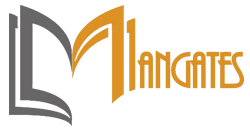This practical course shows the delegates what is needed to establish a functioning and integrated Enterprise Architecture Practice using TOGAF. The course provides the delegates with many opportunities to undertake the activities required, to define, identify and measure the outputs they create.
This is a three-day course with extensive delegate interaction and exercises designed to provide takeaways that will provide the basis of setting up a function EA Practice.
The course will integrate the activities through the use of an industry best-practice Open Group accredited tool to support the in-class activities.
Duration Learning Credits
3 Days – 24 hours of 24 PDU’s
Session
Public Classroom Pricing:
Early Bird Price: CAD 2295.00
Regular Price: CAD 2595.00
Instructor-Led Virtual Live Pricing:
Early Bird Price: CAD 1995.00
Regular Price: CAD 2295.00
Private Group / In-House Learning:
Have a group of 3 or more people?
Register yourself with a special pricing and
request the training exclusively
Day – 1
● Overview of the TOGAF V9.1 framework (specifically the Preliminary Phase) – Linking business and architecture
● The Enterprise Architecture Practice (EAP) – How to use the TOGAF™ framework to assist in the EAP Practice setup
● EAP – Implementation vs Integration Approach – Setup vs. integration as a process for establishing the EA Practice (SDLC, project/programme management, operations management)
Day – 2
● EA Practice – Demand and Supply – Understand the EA Practice requirements in terms of demand (who and why), supply (what and where) and execution (how and when)
● EA Practice – Interaction of Strategy, Architecture and Delivery – Understand the interaction of strategy (motivation), architecture (composition) and delivery (realisation)
● EA Practice – Operating and Engagement Models – Understand engagements models (with stakeholders, projects/programmes, and organisational units)
● Capability Assessment – Assessing the EA Practice capability (for objective setting and sustaining the activities)
● Governance – Answering the questions
● What standards, principles, services, capabilities and tools do we need?
Day – 3
● Services, Capabilities and Tools
● Communications Strategy and Execution
● EA Charter
● EA Handbook creation including
○ EA practice operating model
○ EA content creation overview and management
○ EA governance processes
○ EA Practice metrics and benefits management
○ EA communications plan
● Newly-appointed EA Managers
● Chief architects (experienced EA practitioners)
● Lead architects
● Project and programme managers.
Individuals certified at this level will have demonstrated their understanding of:
● Recognise and remember TOGAF v9.1
● Understand the Preliminary Phase
● Recognise the need for an Enterprise Architecture Practice (EAP)
Benefits of Taking This Course:
On completion of the course you will be able to embark on a substantive piece of Enterprise Architecture with confidence and aplomb. On Day 1, you will know about the necessary team, how to set up the processes, the relative worth of each of the academic aspects vis a vis the on-the-ground pragmatics.
Appreciation of who are the likely sources of useful information, beyond the ‘have-to-speak-to’ people will be sharpened up, leading to more efficient use of resource. Some enhancement of political awareness and people-problem solving will underpin the confidence levels.
There will be a better understanding of the necessary role played by tooling and an understanding of the importance of EA/Design process interfaces between the protagonists in large and complex processes such as JIT supply/receipt, outsourcing, regulatory weight etc. and in general the intersections of multiple interested business functions.
